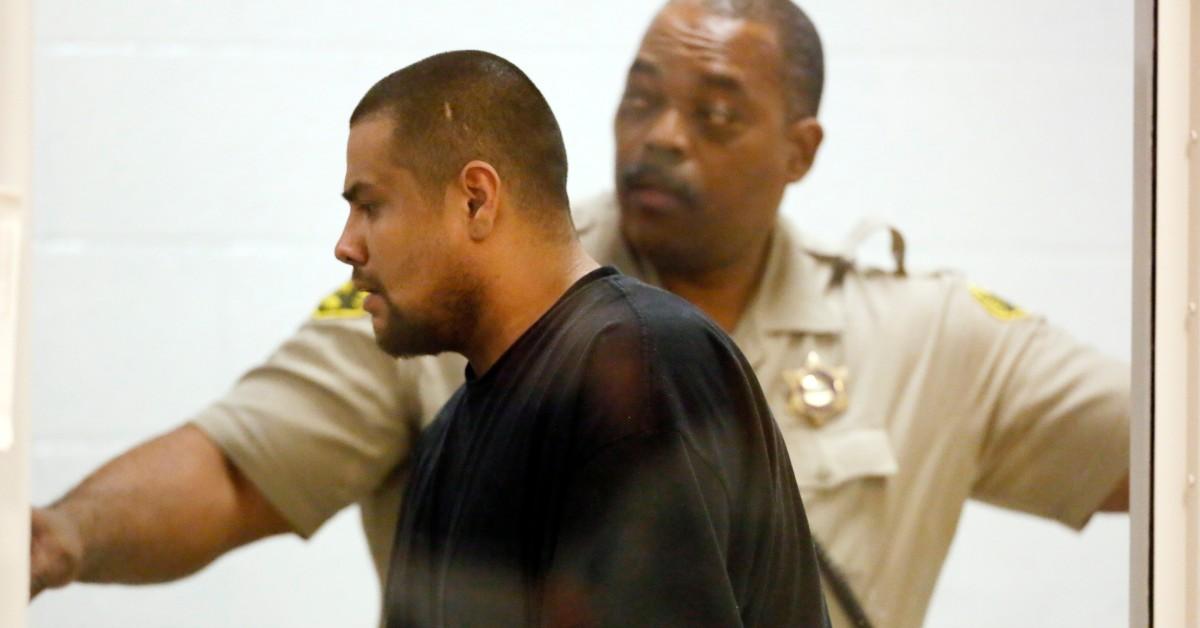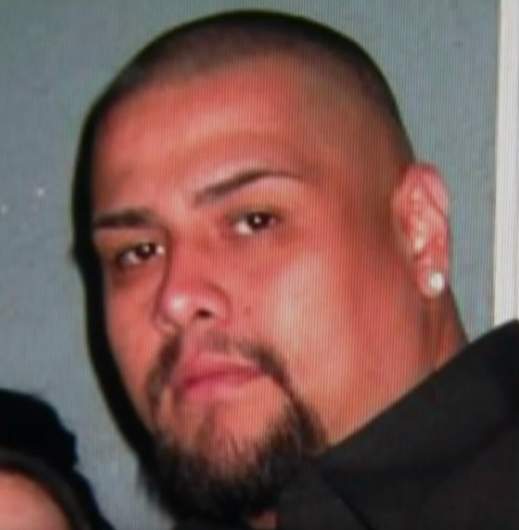Isauro Aguirre: Death Row & The Gabriel Fernandez Case
What becomes of a man when cruelty becomes his defining characteristic? In the case of Isauro Aguirre, the answer is a sentence of death, a life lived in infamy, and a legacy forever stained by the unimaginable suffering inflicted upon a defenseless child.
The name Isauro Aguirre is inextricably linked to one of the most horrific cases of child abuse and murder in recent memory. His actions, alongside those of his girlfriend, Pearl Fernandez, culminated in the brutal death of her eight-year-old son, Gabriel Fernandez. The details of the case are harrowing, a stark reminder of the depths of human depravity. Born on June 13, 1980, Aguirres life took a dark turn, leading him down a path of violence and ultimately, to California's death row. His journey, from a seemingly ordinary individual to a convicted murderer, is a chilling narrative of escalating abuse and indifference.
| Full Name | Isauro Tony Aguirre |
| Date of Birth | June 13, 1980 |
| Age at Sentencing | 37 (June 2018) |
| Place of Birth | (Details not publicly available) |
| Education | Dropped out of school, repeated two grades, possible learning disability |
| Previous Employment | Caregiver and driver at Woodland Park Retirement Hotel (3 years) |
| Relationship | Boyfriend of Pearl Fernandez |
| Victim | Gabriel Fernandez (Pearl Fernandez's son) |
| Conviction | First-degree murder, with the special circumstance of intentional murder by means of torture |
| Sentence | Death |
| Current Status | On death row at San Quentin State Prison, California. Execution suspended by the Governor. |
| Appeals | Automatic appeal to the California Supreme Court pending |
| Notable Facts | Convicted of torturing Gabriel Fernandez over eight months, including acts of physical and emotional abuse. |
| Reference | California Department of Corrections and Rehabilitation |
The grim details of Gabriel Fernandezs final months are etched in the public consciousness, a testament to the cruelty inflicted upon him. The abuse, which spanned eight months, was multifaceted and relentless. It included physical assaults such as being shot with a BB gun, having cigarettes extinguished on his skin, and being forced to eat cat litter. The boy was regularly subjected to emotional torment, forced to sleep in a locked cabinet, often bound and gagged. The culmination of this systematic abuse was his tragic death in May 2013.
The investigation into Gabriel's death led to the arrest of both Aguirre and Pearl Fernandez on May 23, 2013. The ensuing legal proceedings brought to light the extent of the abuse and the culpability of both individuals. The trial, held in downtown Los Angeles, was a somber affair, with the prosecution meticulously presenting the evidence of the torture Gabriel had endured. The jury, after considering the overwhelming evidence, found Aguirre guilty of first-degree murder, with the special circumstance of intentional murder by means of torture. This finding paved the way for the ultimate sentence: death.
On June 13, 2018, at the age of 37, Aguirre was formally sentenced to death by Los Angeles County Superior Court Judge George Lomeli. The courtroom was filled with a palpable sense of gravity as the sentence was handed down. District Attorney Jackie Lacey's words, "This case showed how evil can not only inflict lasting damage to those who loved Gabriel but our society as well," encapsulated the profound impact of the crime. The sentence, while representing justice for the heinous acts committed, also underscored the states commitment to punishing the perpetrators of such egregious crimes.
Aguirre's conviction and sentencing sparked intense debate and scrutiny. The case became a lightning rod for discussions about child welfare, the effectiveness of the child protective services, and the moral responsibility of those who fail to protect vulnerable children. It was revealed during the trial that there were multiple reports of abuse before Gabriels death, raising questions about the systems response and the failures that allowed the abuse to escalate unchecked.
The sentencing, however, does not mean immediate execution. Aguirre remains on death row at San Quentin State Prison, California, awaiting his fate. California's governor, citing his personal moral objections, has suspended all executions for the duration of his term in office. This means that Aguirres death date is yet to be announced, and his fate remains uncertain, entangled in the complexities of the legal and political landscape.
Pearl Fernandez, Gabriel's mother, also faced legal consequences. In February 2018, as part of a plea agreement, she pleaded guilty to first-degree murder and avoided the death penalty. She was sentenced to life in prison without the possibility of parole, relinquishing her right to appeal as part of the agreement. The contrast in their sentences, while both guilty of the same crime, illustrates the nuanced and often unpredictable nature of the legal system.
The impact of this case extends far beyond the courtroom. The community, scarred by the cruelty inflicted upon Gabriel, grappled with the profound implications of his death. The case became a catalyst for change, prompting increased scrutiny of child welfare practices and reforms aimed at better protecting vulnerable children. The memory of Gabriel Fernandez serves as a constant reminder of the importance of vigilance and the urgent need to safeguard the well-being of every child.
The story of Isauro Aguirre is not just about a crime; its a reflection of the darkest aspects of human nature. It is a grim portrait of a man who chose cruelty, and the tragic consequence of that choice. His story remains a chilling reminder of the capacity for evil, and the lasting impact of one act of violence.
The case continues to evoke strong emotions and serve as a stark reminder of the importance of protecting vulnerable children. The actions of Isauro Aguirre and Pearl Fernandez remain a chilling example of the depths of human cruelty.
The automatic appeal to the California Supreme Court is a standard part of the legal process in death penalty cases, ensuring a thorough review of the conviction and sentencing. This process allows for any potential legal errors to be identified and addressed. As the appeal is pending, Aguirres fate remains in the hands of the courts. His name, synonymous with unspeakable acts, is now forever linked to the legal system's long and complex struggle for justice.


